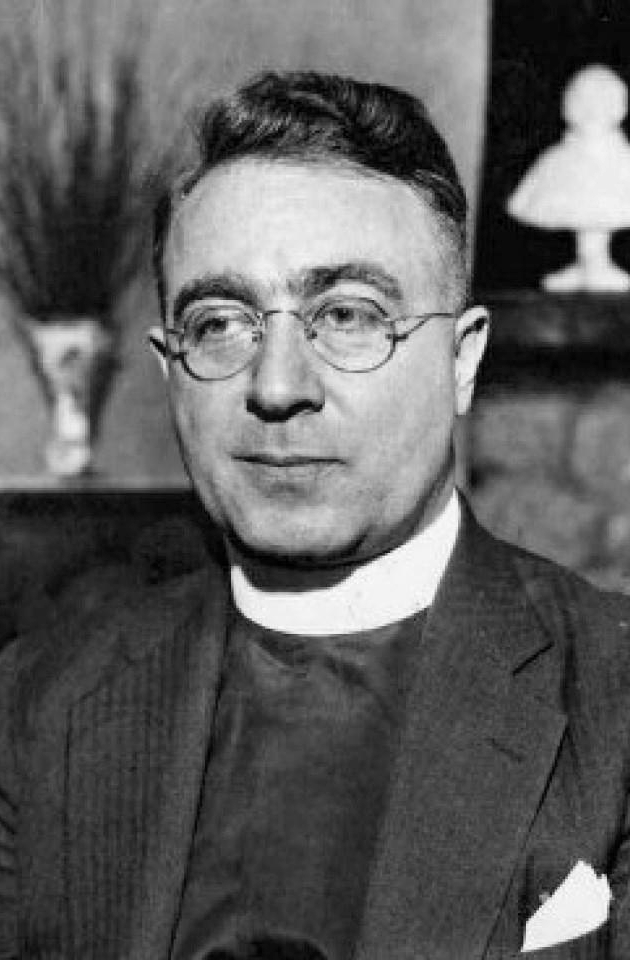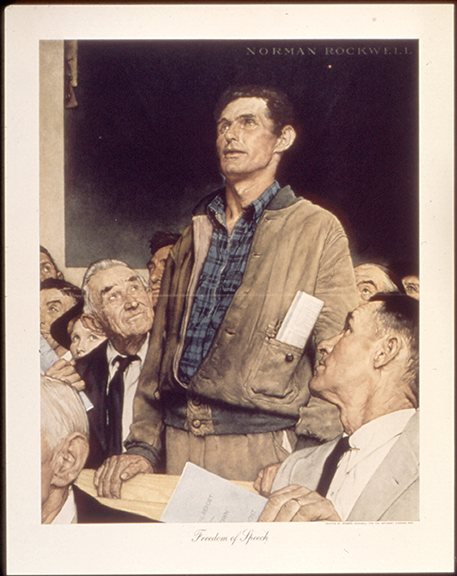Resources
- Revolutions in Communication: Media History from Gutenberg to the Digital Age -- A companion book and web site also by Prof. Kovarik.
- Free speech Center MTSU blog
- Committee to Protect Journalists
- Electronic Frontier Foundation
- First Amendment Commons
- Freedom Forum First Amendment Center
- First Amendment Coalition
- First Amendment handbook RCFP
- First Amendment News
- Foundation for Individual Rights in Education
- Historic Supreme Court decisions, by topic (Cornell University site)
- MTSU's First Amendment Encyclopedia
- National Association of Broadcasters
- National Freedom of Information Coalition
- News Reporters Legal Handbook, State Bar of Wisconsin
- Reporters Committee for Freedom of the Press
- Reporters Handbook, state bar of Florida
- Reporters Without Borders
- Reuters Foundation Reporters Handbook
- Student Press Law Center
- Washington Post "Constitutional" podcast, especially The First Amendment
Ethics
Blogs
Category Archives: Uncategorized
Trump & the press: John Oliver’s take
Comments Off on Trump & the press: John Oliver’s take
Posted in Uncategorized
Why CBS shouldn’t settle with Trump
Comments Off on Why CBS shouldn’t settle with Trump
Posted in Uncategorized
2024 Supreme Court comm cases
The court heard four major communications cases in the 2023-24 term and reported opinions in the spring and summer of 2024.
Moody v Netchoice involved state government attempts to stop “censorship” by social media companies. At issue was whether the First Amendment allows a Florida or Texas to require that social-media companies host third-party communications. The Florida and Texas state laws were intended to ensure that conservative voices were not censored by big tech companies, and the laws were premised on the idea that social media are common carriers.
In a rare unanimous decision, the court said that social media companies are not common carriers but rather private media companies and that they could not be regulated by state governments. A state government “cannot get its way just by asserting an interest in better balancing the marketplace of ideas,” said the Supreme Court opinion. “Whatever the challenges of applying the Constitution to ever-advancing technology, the basic principles (of the First Amendment) do not vary.”
Among a long list of cases supporting Netchoice are Republican National Committee v Google, which was dismissed in favor of Google on Aug. 24, 2023. The RNC alleged that Google had been intentionally misdirecting its emails to Gmail users’ spam folders at the end of each month “to secretly suppress the political speech and income of one major political party.” The court said the RNC had not proven bad faith and that, in any event, that would have been protected by section 230 of the CDA. Another similar case protecting the right of private companies to free speech was YouTube v Prager, 2020.
O’Connor-Ratcliff v. Garnier. When a public official blocks someone from their social media personal, unofficial social media account, is that an act of censorship prohibited by the First Amendment? The court ruled that public officials who post about topics relating to their work on their personal social media accounts ARE acting for the government, and therefore ARE violating the First Amendment when they block their critics.
Vidal v. Elster, Does the the refusal to register a trademark under 15 U.S.C. § 1052(c) violate the First Amendment when the mark contains criticism of a government official or public figure? The proposed trademark in question was “Trump too small.” The court said that the Lanham Act prohibits the registration of a trademark that identifies a particular living individual, unless that individual agrees. Refusal to register the trademark does not violate the First Amendment.
Murthy v. Missouri Can the federal government attempt to influence private social media companies’ content-moderation decisions? Is that a state action that violates First Amendment rights? The state of Missouri claimed that US Surgeon General Murthy’s attempts to influence social media about “anti-vax” rhetoric was a violation. The Supreme Court disagreed.
MORE: See the SCOTUS Blog
Comments Off on 2024 Supreme Court comm cases
Posted in Uncategorized
Protests curtailed in Hong Kong
According to the Hong Kong Democracy Council, authorities have jailed more than 1,500 political prisoners since 2019, half of whom are under the age of 25. https://www.washingtonpost.com/opinions/2023/07/01/hong-kong-china-crackdown-democracy/
Comments Off on Protests curtailed in Hong Kong
Posted in Uncategorized
John Stewart and the Fox libel suit
This segment of The Problem with John Stewart was broadcast before the Fox – Dominion settlement announced April 19, 2023.
Comments Off on John Stewart and the Fox libel suit
Posted in Uncategorized
Pushing back against online harrassment
Federal agencies will fight online harassment across four main lines of effort, the Biden administration said March 3, 2023. These are prevention, survivor support, accountability, and research, according to a White House announcement.
Since its launch, the Task Force to Address Online Harassment and Abuse has heard from hundreds of stakeholders—survivors, advocates, parents, educators, law enforcement, medical and legal professionals, and researchers—who discussed the significant harm caused by online harassment and abuse.
The Task Force is part of Biden’s call to action in the State of Union for solutions to address online safety, health, privacy, and accountability.
Comments Off on Pushing back against online harrassment
Posted in Uncategorized
A Right to be Forgotten

By Bill Kovarik (“How a silent movie informs the current debate over the right to be forgotten.” CC license. The Conversation)
In 1915, Gabrielle Darley killed a New Orleans man who had tricked her into a life of prostitution. She was tried, acquitted of murder and within a few years was living a new life under her married name, Melvin. Then a blockbuster movie, “The Red Kimono,” splashed her sensational story across America’s silver screens.
The 1925 film used Darley’s real name and details of her life taken from transcripts of the murder trial. She sued for invasion of privacy and won.
In deciding in favor of Darley, a California court said that people have a right to rehabilitation. “We should permit [people] to continue in the path of rectitude rather than throw [them] back into a life of shame or crime,” the court said. It is a sentiment that is harder to put into practice today, when information is much more readily available. Nonetheless, policymakers and media outlets are looking at the issue.
As a scholar of media history and law, I see Darley’s story as more than an interesting slice of legal and cinematic history. Her case provides an early example of how private people struggle to escape their pasts and how the idea of privacy is linked to rehabilitation.
Comments Off on A Right to be Forgotten
Posted in Uncategorized
That time private US media companies stepped in to silence the falsehoods and incitements of a major public figure … in 1938
By Bill Kovarik
Published in The Conversation, Jan. 15, 2021
Creative Commons license for non-profit republication.
In speeches filled with hatred and falsehoods, a public figure attacks his enemies  and calls for marches on Washington. Then, after one particularly virulent address, private media companies close down his channels of communication, prompting consternation from his supporters and calls for a code of conduct to filter out violent rhetoric.
and calls for marches on Washington. Then, after one particularly virulent address, private media companies close down his channels of communication, prompting consternation from his supporters and calls for a code of conduct to filter out violent rhetoric.
Sound familiar? Well, this was 1938, and the individual in question was Father Charles E. Coughlin, a Nazi-sympathizing Catholic priest with unfettered access to America’s vast radio audiences. The firms silencing him were the broadcasters of the day.
As a media historian, I find more than a little similarity between the stand those stations took back then and the way Twitter, YouTube and Facebook have silenced false claims of election fraud and incitements to violence in the aftermath of the siege on the U.S. Capitol – noticeably by silencing the claims of Donald Trump and his supporters.
A radio ministry
Coughlin’s Detroit ministry had grown up with radio, and, as his sermons grew more political, he began calling President Franklin D. Roosevelt a liar, a betrayer and a double-crosser. His fierce rhetoric fueled rallies and letter-writing campaigns for a dozen right-wing causes, from banking policy to opposing Russian communism. At the height of his popularity, an estimated 30 million Americans listened to his Sunday sermons.
Comments Off on That time private US media companies stepped in to silence the falsehoods and incitements of a major public figure … in 1938
Posted in Uncategorized
High school media censorship
It’s no secret that a Norfolk, Virginia high school building is deteriorating. School district officials have taken state legislators on tours to show how much they need to fund repairs. They point out problems like the collapsed auditorium ceiling and a sagging classroom floor, along with peeling paint and ancient bathroom fixtures.
So it didn’t seem like such a taboo subject when a creative group of the school’s students shot a video that described the building’s condition in May, 2019. But apparently it was. Administrators took the video off the web without explanation a week later.
This is the state of censorship for young people in Thomas Jefferson’s Virginia. A fact so obvious it can be seen from the street can’t be discussed in their own student media.
This type of censorship is exactly what the First Amendment prevents for adults, but these rights do not necessarily apply to high school students, according to the 1988 US Supreme Court decision in Hazelwood School District v. Kuhlmeier.
Eleven states have created exceptions for high school students under the Tinker v Des Moines standard which is more protective of freedom of speech and press.
Virginia delegate Chris Hurst, a former broadcast journalist has argued that this kind of censorship is “beyond the pale” and introduced state legislation in 2019 that would have recognized the First Amendment rights of student journalists. The legislation was reintroduced in 2020, and it should get better treatment than it did in 2020, when it was not voted out of committee and was opposed by high school administrators. In committee testimony in 2019, one high school administrator wondered just where this crazy idea of freedom of speech would stop, and envisioned schools being forced to publish sex manuals for first graders. That’s a pretty wild exaggeration, but it shows just how little school administrators understand one of the most important issues in public life today.
Comments Off on High school media censorship
Posted in Uncategorized
Tagged censorship, Virginia Schools



